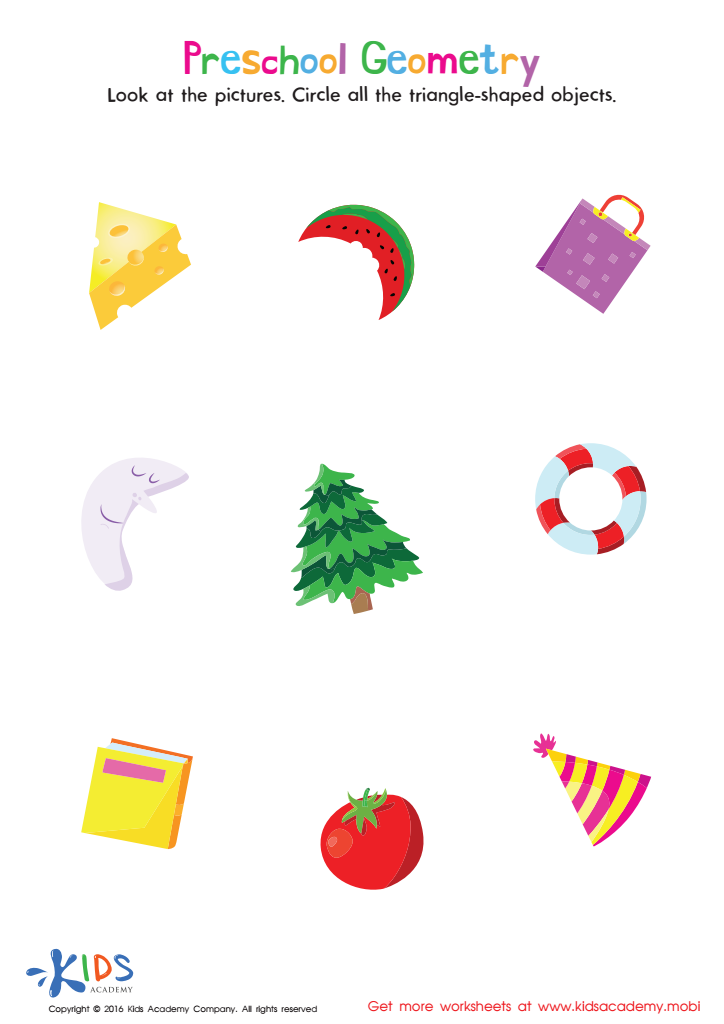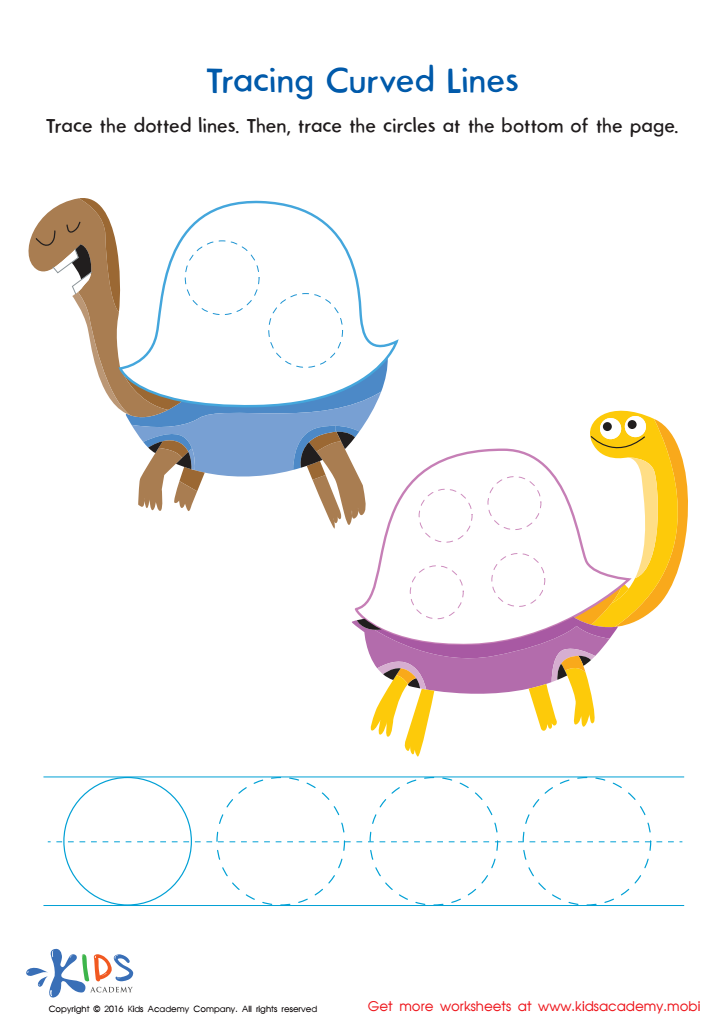Normal Geometry Worksheets for Ages 3-7 - Page 2
63 filtered results
-
From - To
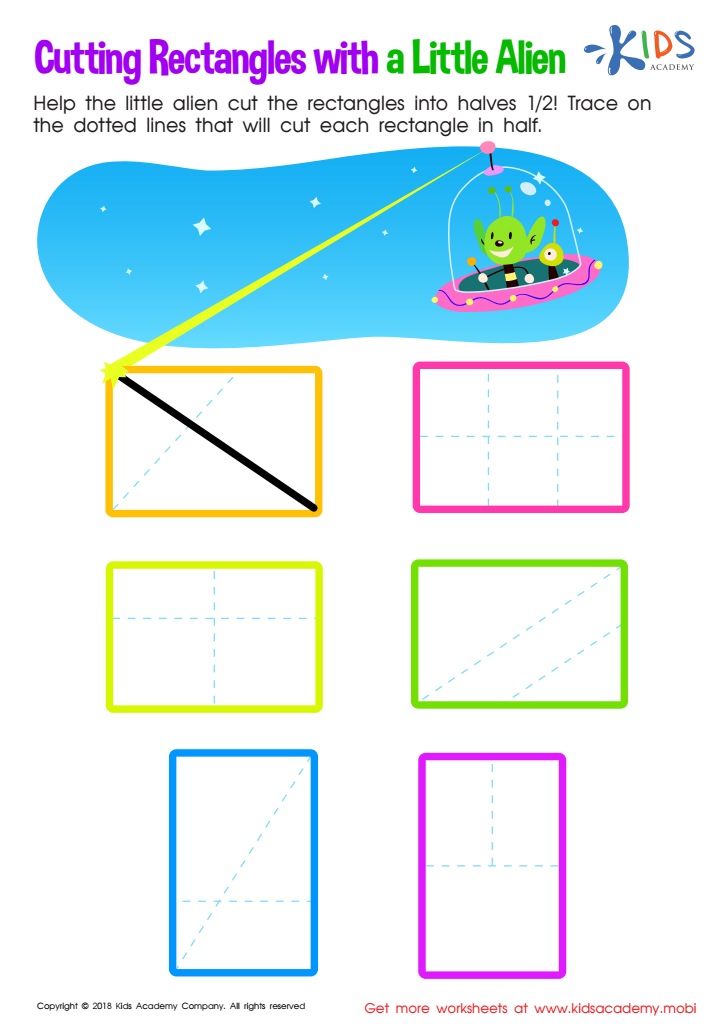

Cutting Rectangles with Alien Worksheet
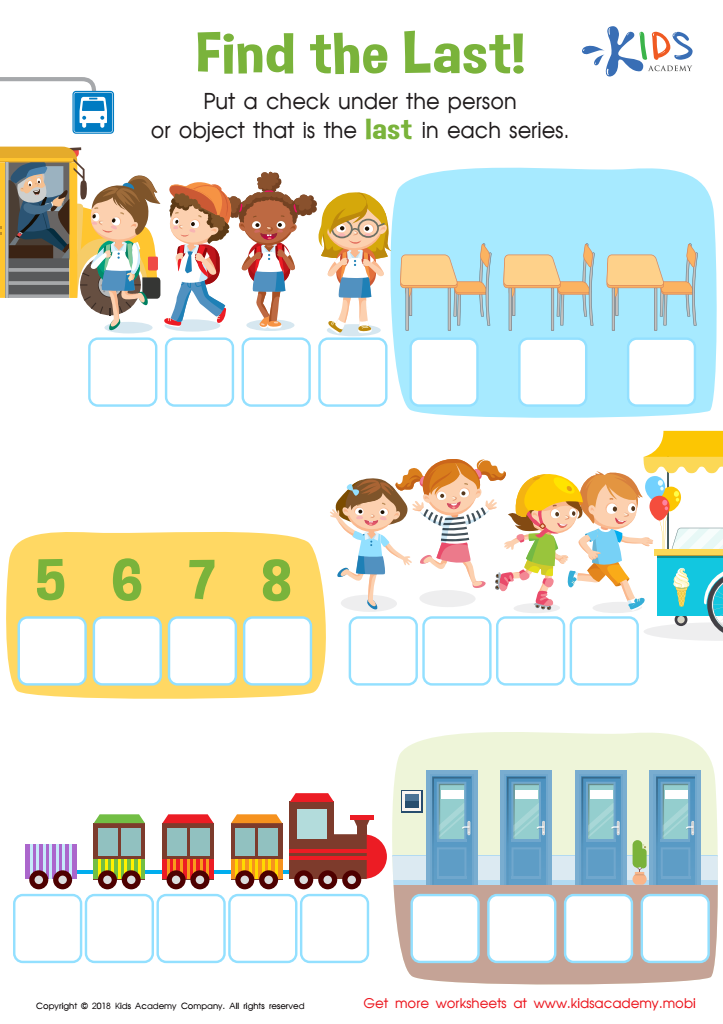

Find the Last! Worksheet
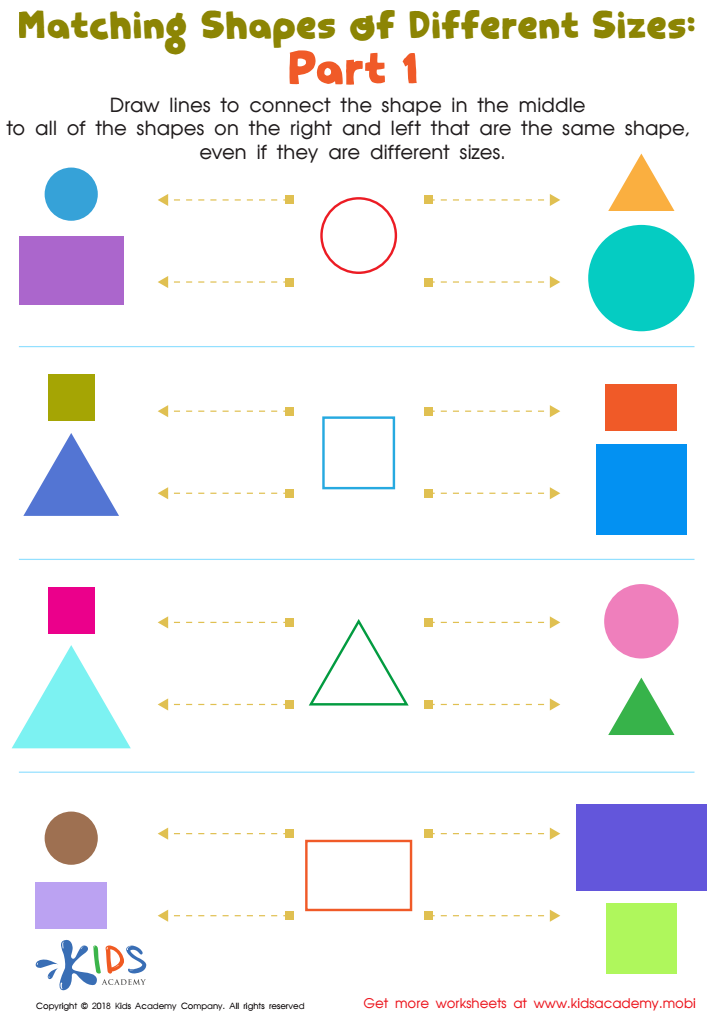

Geometry: part 1 Worksheet


Make the Same Pattern Worksheet
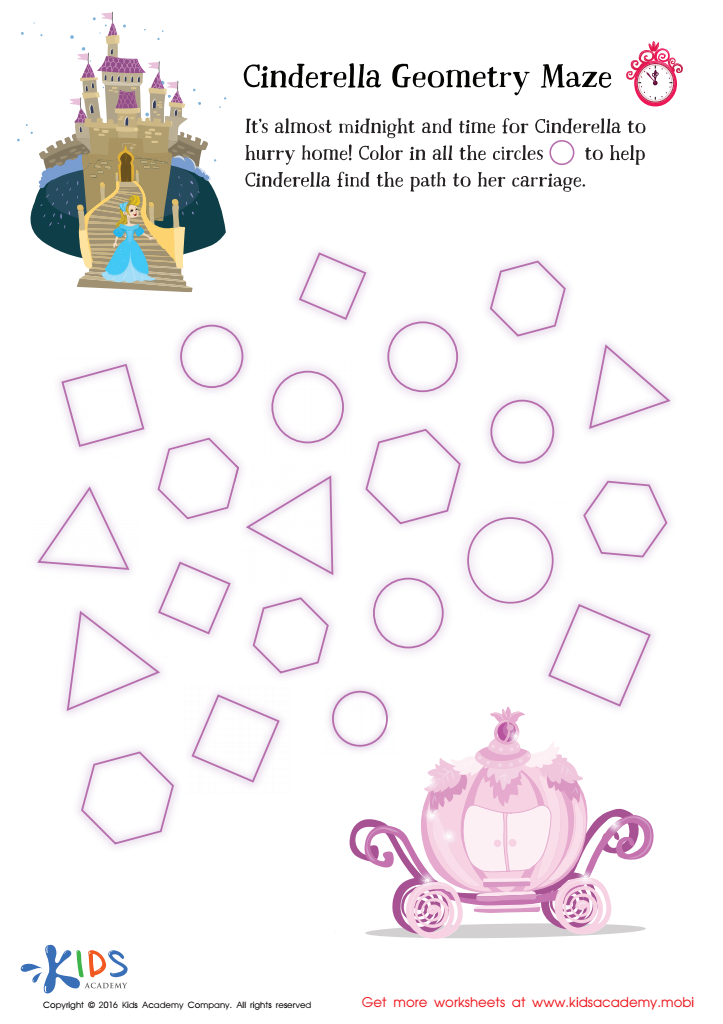

Cinderella Geometry Maze Worksheet
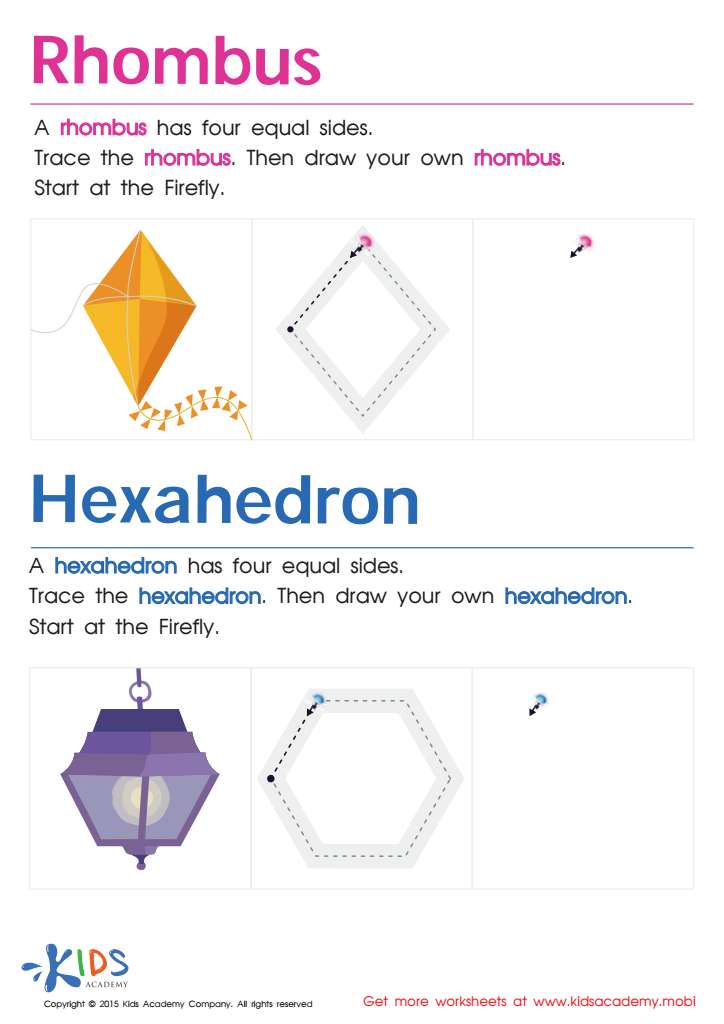

Draw a Rhombus And a Hexahedron Printable


Preschool Geometry Match Up Worksheet
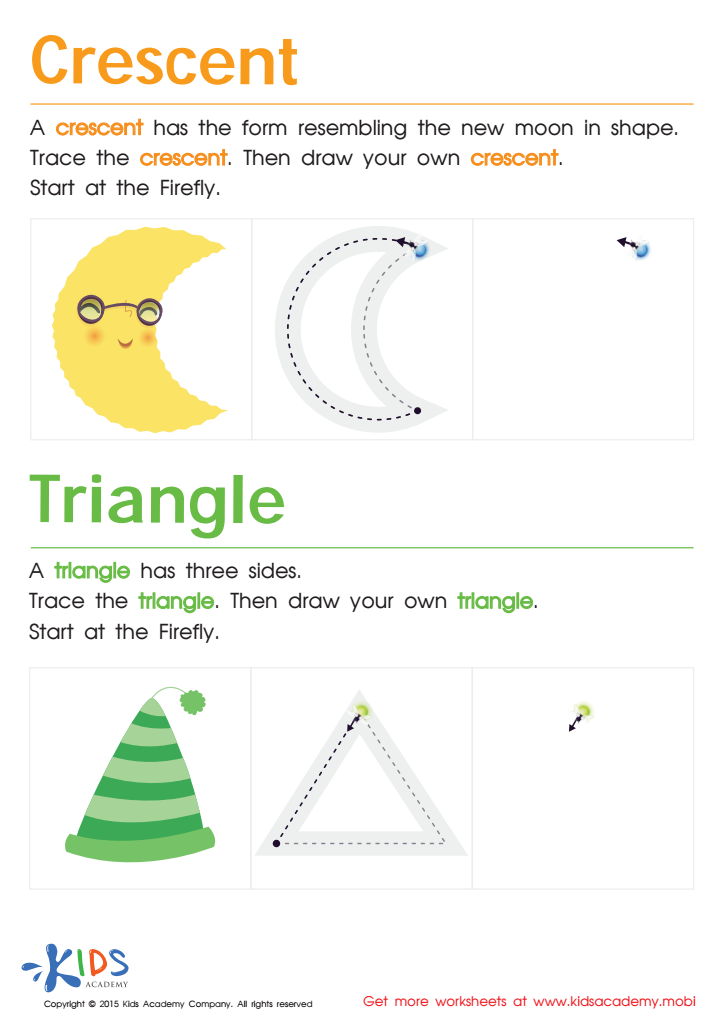

Learning to Draw Crescents And Triangles Worksheet
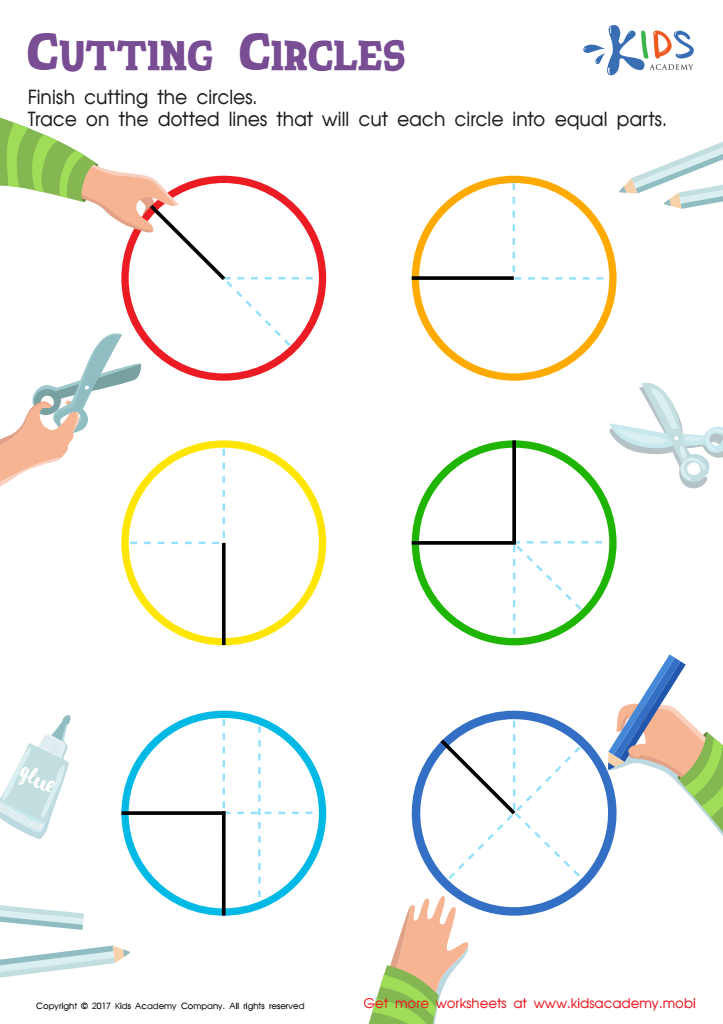

Cutting Circles Worksheet
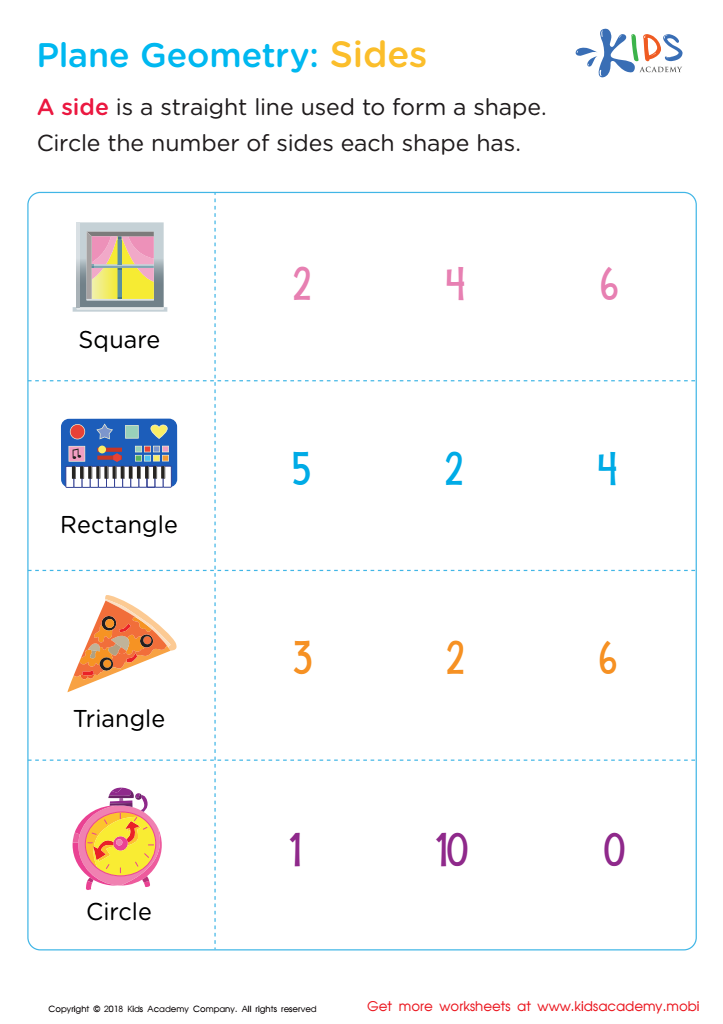

Plane Geometry: Sides Worksheet
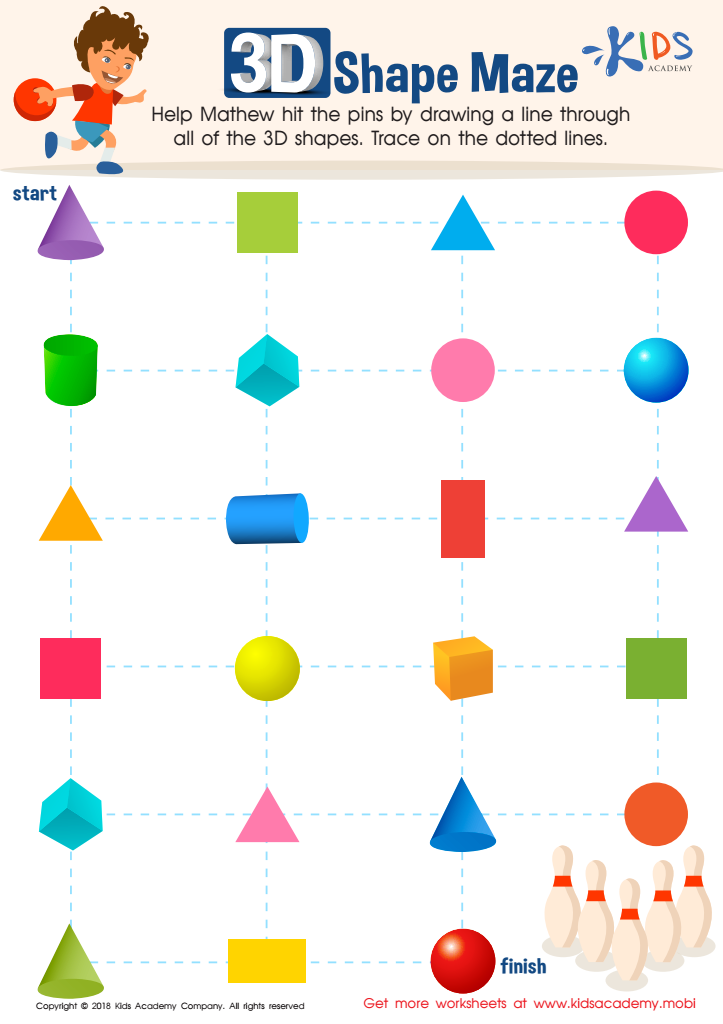

Shapes Maze Geometry Worksheet
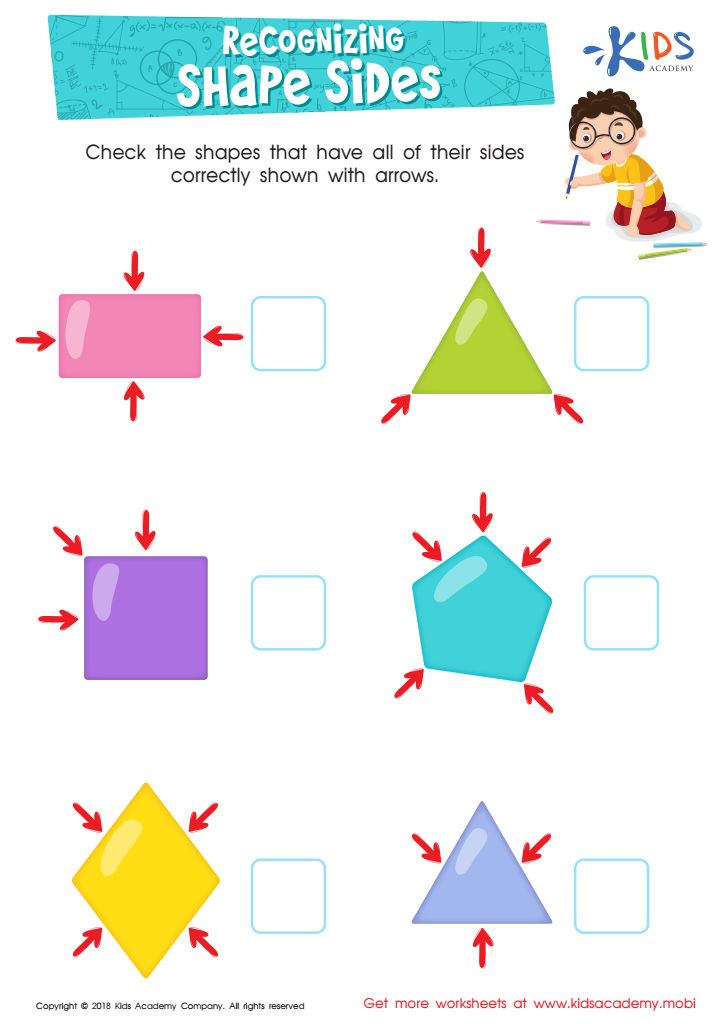

Recognizing Shape Sides Worksheet
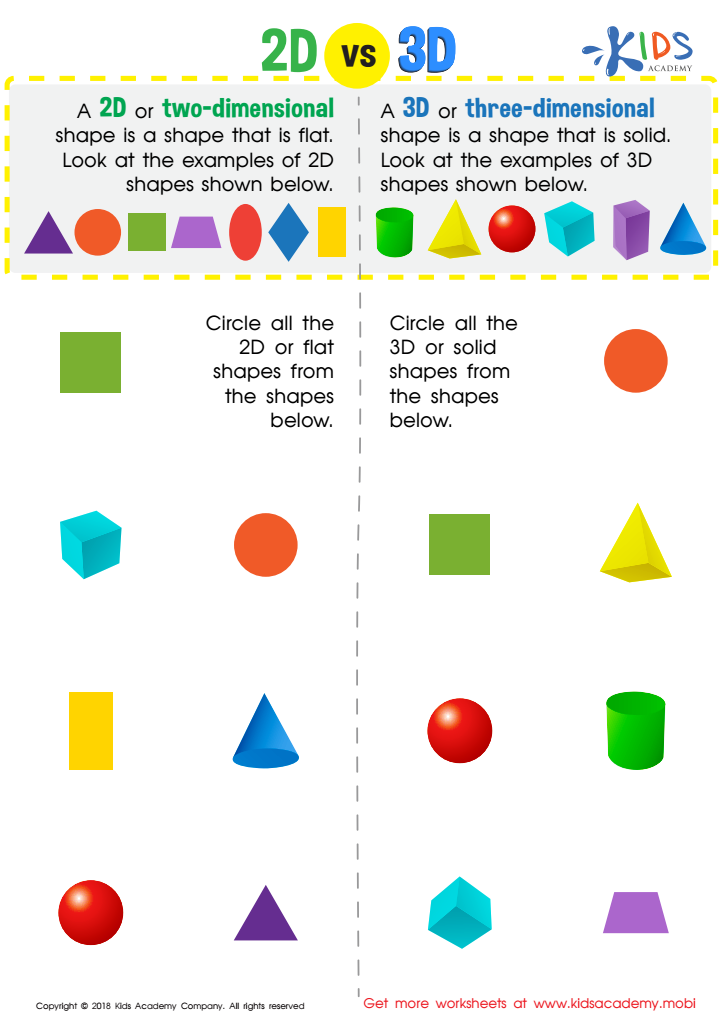

2D vs 3D Shapes Worksheet
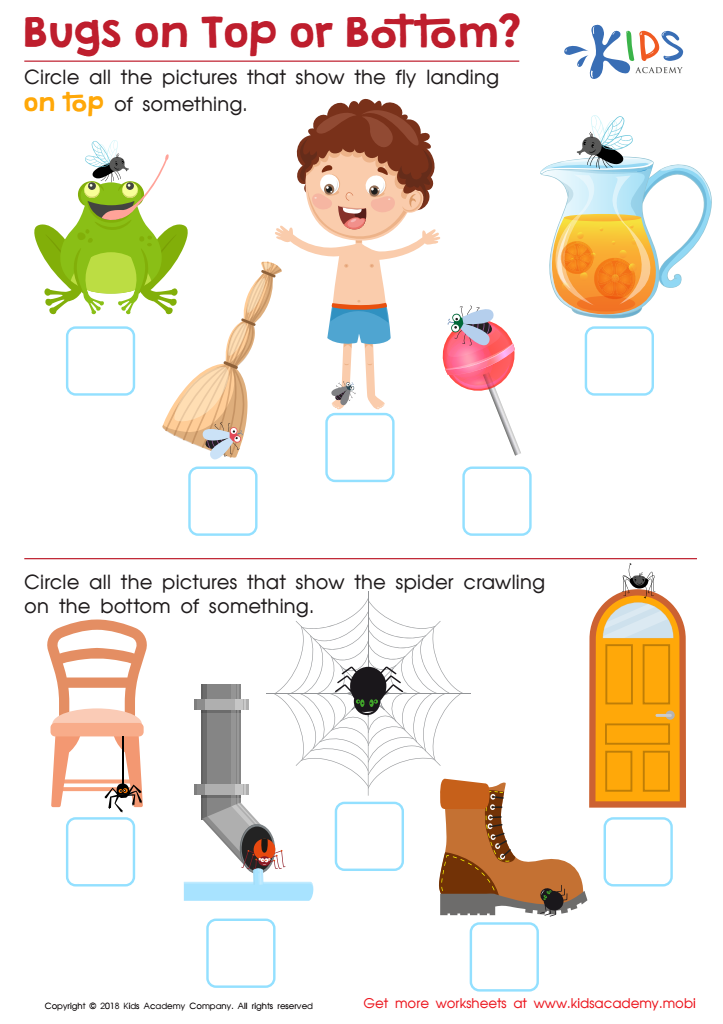

Bugs on Top or Bottom? Worksheet
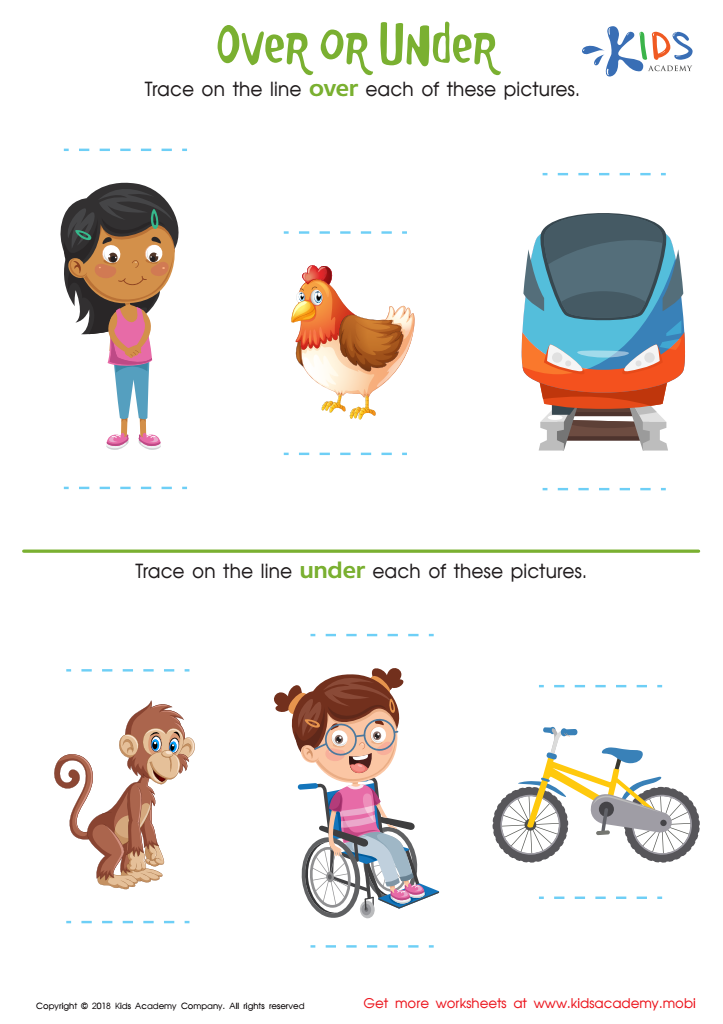

Over or Under Worksheet
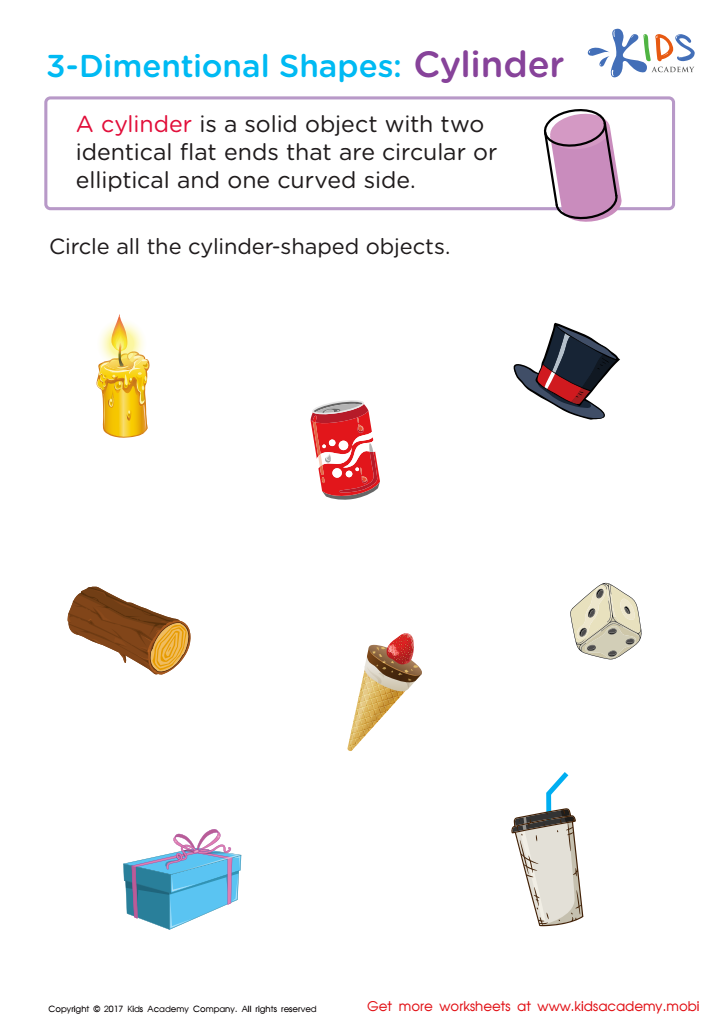

Three–Dimensional Shapes: Cylinder Worksheet
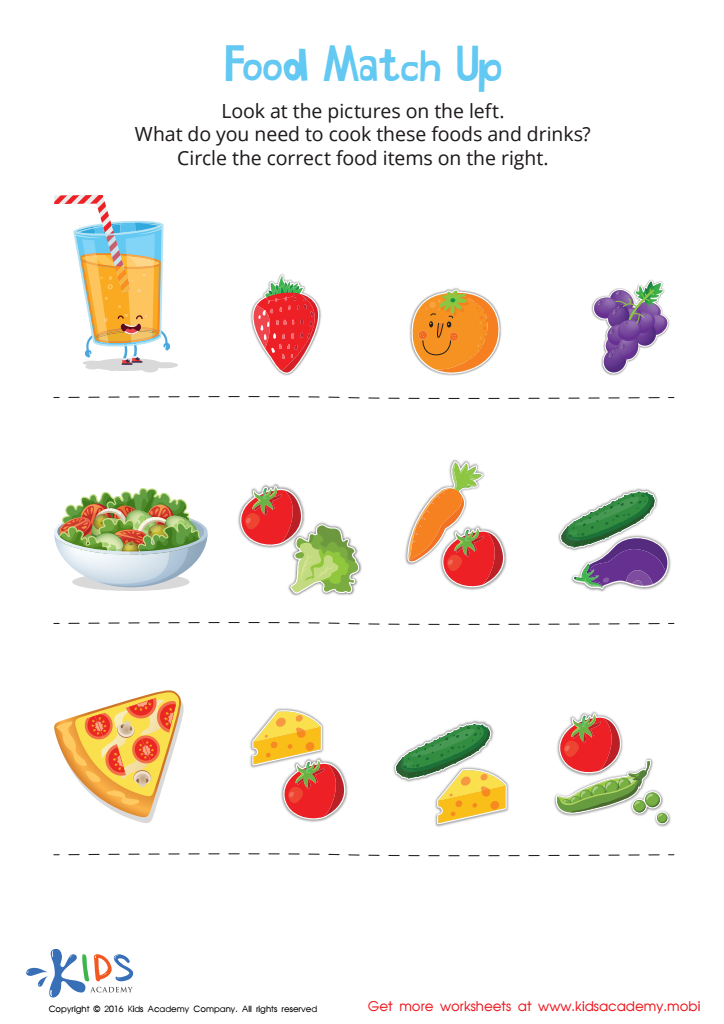

Food Match Up Worksheet
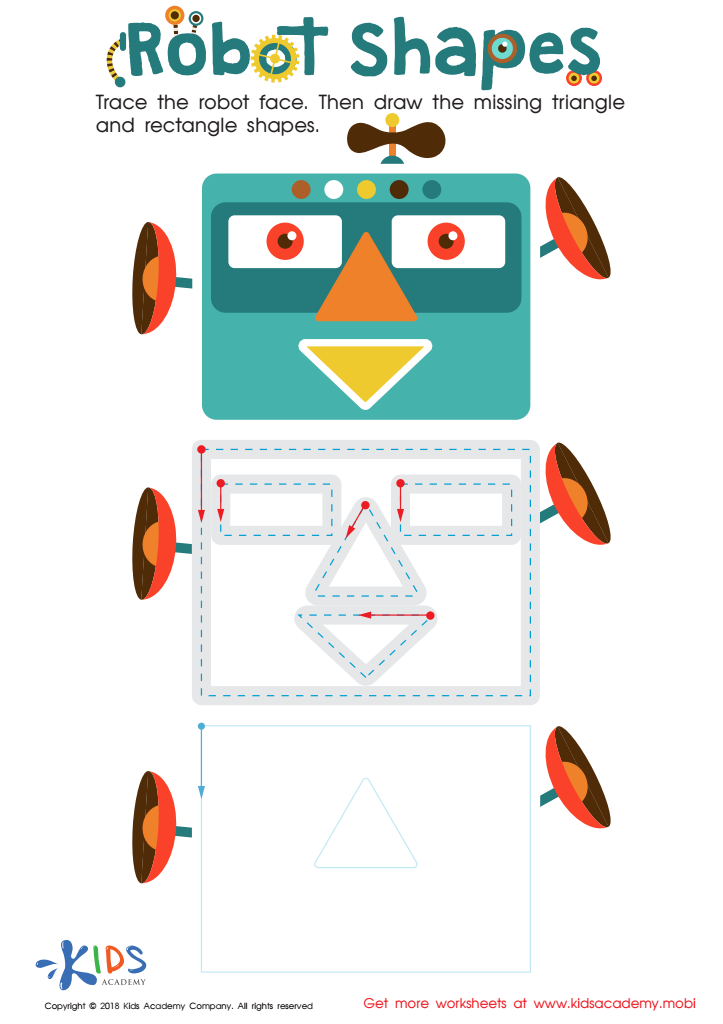

Robot Shapes Worksheet
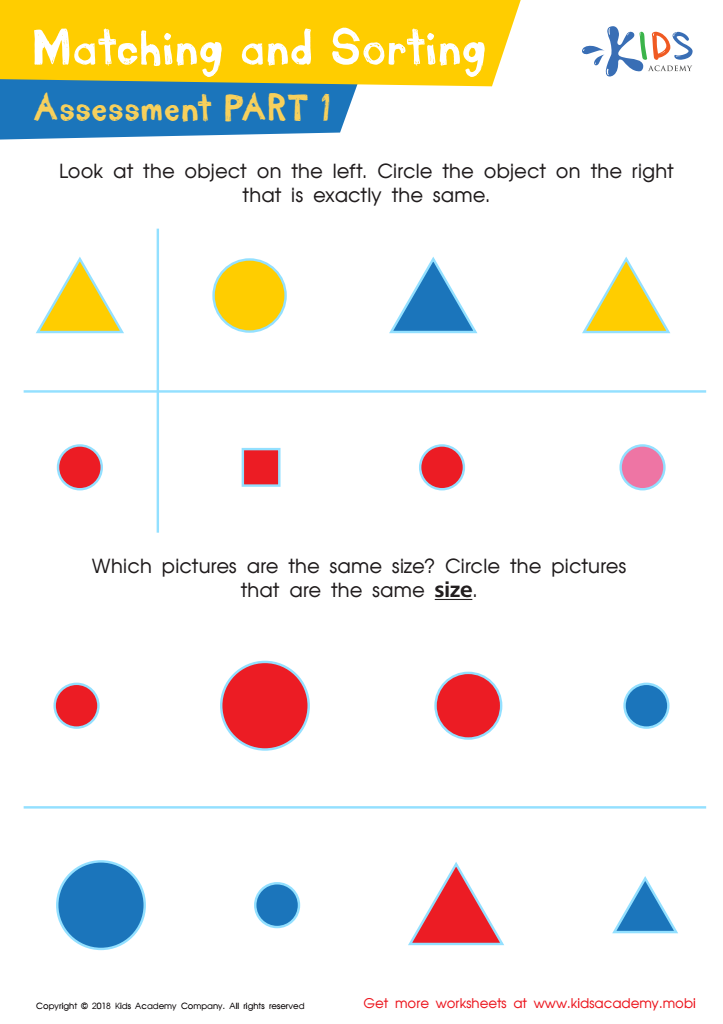

Matching and Sorting for Kindergarten: Assessment 1 Worksheet
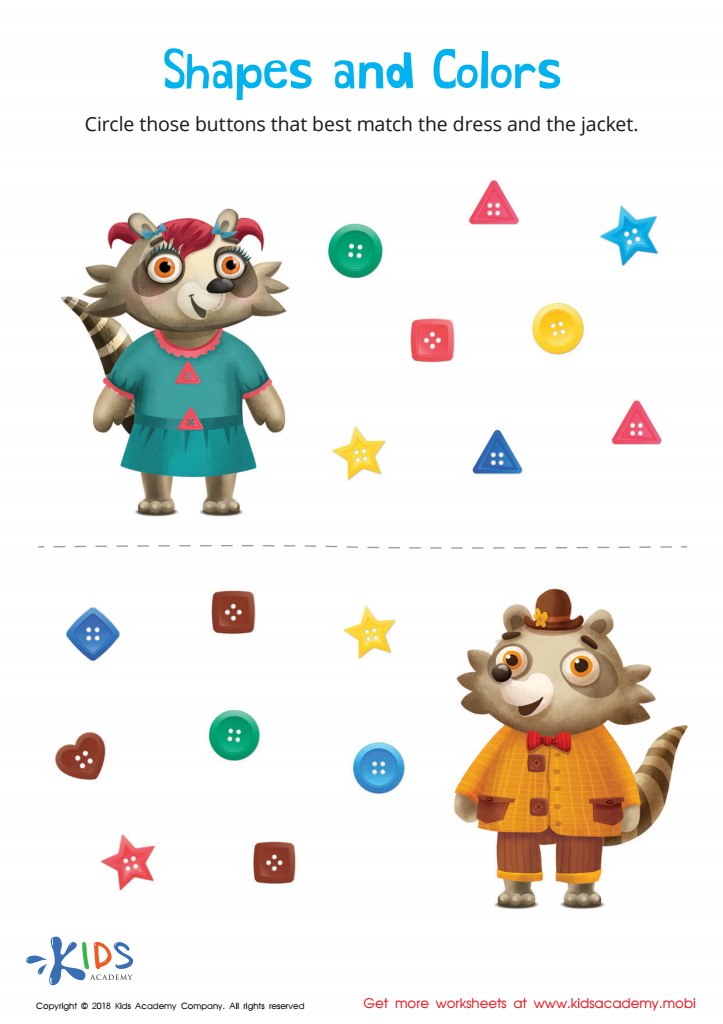

Shapes and Colors Worksheet
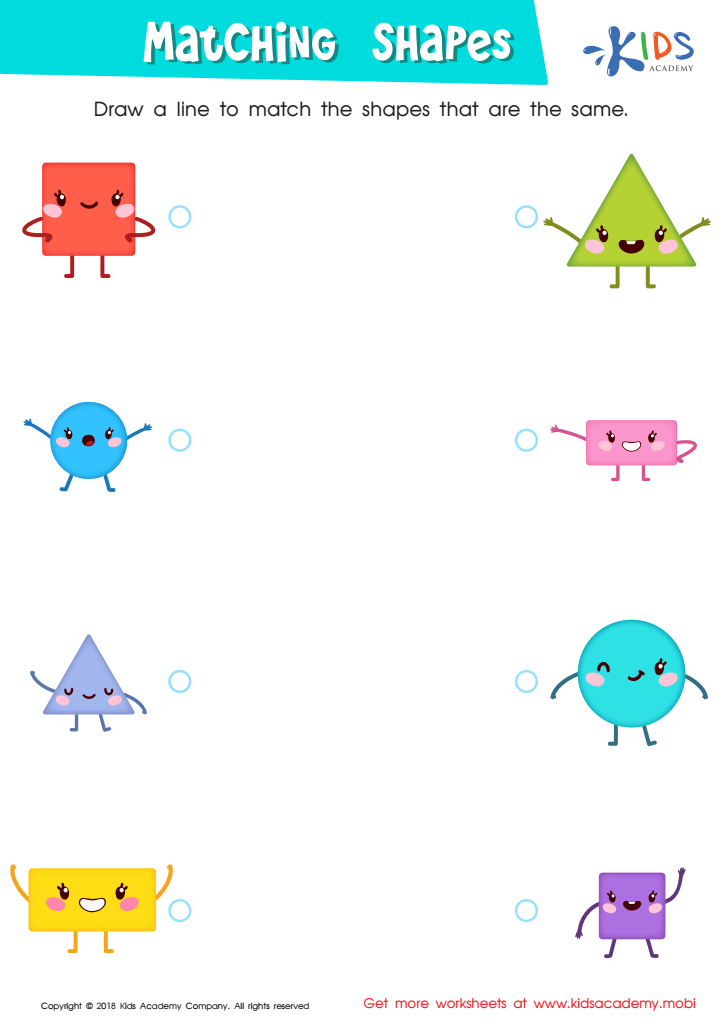

Matching Shapes Worksheet
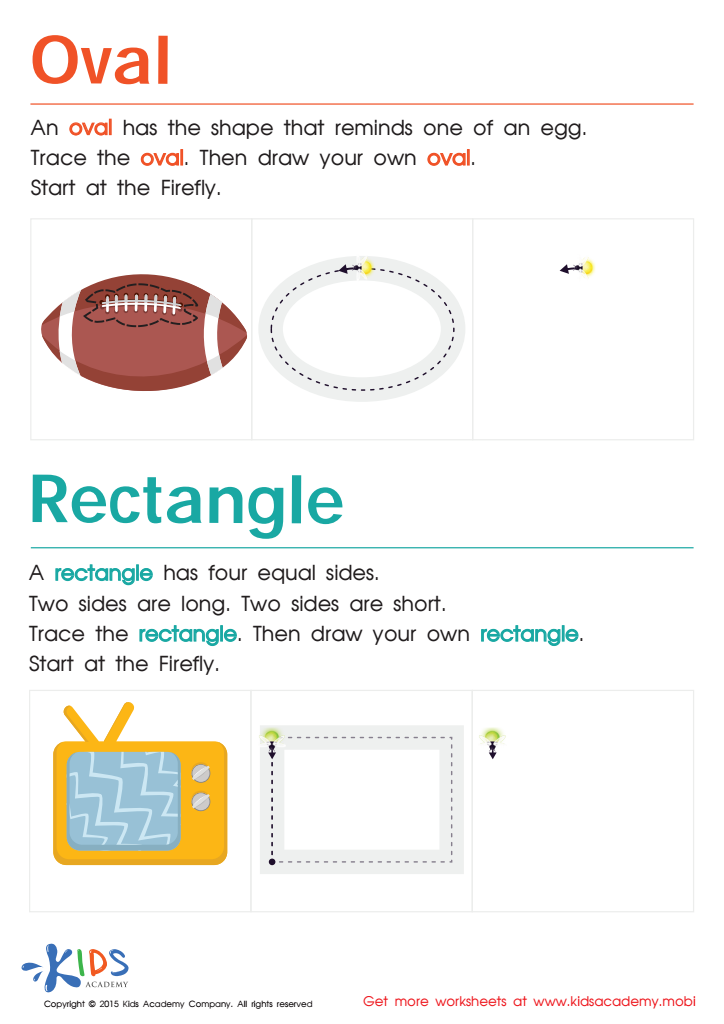

Easy Drawing of Ovals And Rectangles Worksheet
Introducing young children to normal geometry is essential because it lays the foundation for future learning and everyday problem-solving. Geometry helps kids understand and interpret the space and world around them. By recognizing shapes like circles, squares, and triangles, children develop spatial awareness and visual discrimination skills that are crucial for reading, writing, and mathematics.
When children engage with basic geometrical concepts, they also enhance their fine motor skills through activities that involve drawing, cutting, and building with shapes. Additionally, geometry fosters logical thinking and creativity by encouraging kids to explore patterns, symmetry, and relationships between different shapes.
Incorporating geometry into early education can make learning fun and interactive. For example, using colorful toys, puzzles, and drawing exercises can keep young minds engaged while solidifying foundational concepts. This enthusiasm not only enhances their mathematical thinking but builds confidence as they master new challenges.
For parents and teachers, nurturing these early geometry skills is crucial for holistic child development. Children better grasp future concepts in subjects like science, engineering, art, and technology when they've had a strong start in geometry. Creating a geometrically rich environment paves the way for a well-rounded education, equipping kids with the tools they need to succeed academically and in day-to-day life.
 Assign to My Students
Assign to My Students
